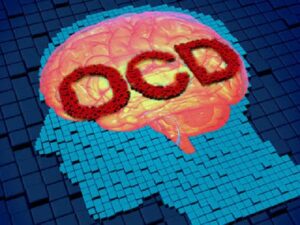Obsessive-compulsive personality disorder (OCD) is a severe mental disorder characterized by excessive thoughts and repetitive behaviors. Sufferers experience intense anxiety and fear, as well as intense worry and dread, over things like contamination or orderliness. The good news is that OCD can be treated, and there are many effective treatment options available. In this blog post, we will discuss some of the most common OCD personality disorder treatment and their efficacy. We will also provide you with tips on how to find the right treatment for you and how to stick with it.
Contents
What is OCD?

Obsessive Compulsive Disorder (OCD) is a mental disorder that typically involves recurrent, intrusive thoughts or images that are experienced as overwhelming and disruptive. These thoughts or images may concern one’s own body, sex, religious beliefs, or cleanliness. People with OCD often have difficulty controlling the intensity of their thoughts and may engage in repetitive behaviors to neutralize the anxiety these thoughts cause.
The reasons for the onset of OCD are unknown, but it is thought to involve a combination of genetic and environmental factors. OCD is more common in women than in men and typically begins during adolescence or early adulthood. It can persist throughout one’s lifetime, although the rate of progression may vary from person to person. Also, OCD is not limited to any specific area of life, and people with the disorder may experience significant distress in any setting.
OCD Personality Disorder Treatment
There are many different types of OCD personality disorder treatment, but the most common type is therapy. Therapy can help people learn how to manage their symptoms and improve their overall quality of life. Other types of treatment include medication, counseling, and group therapy.
Medications

One of the most common types of Medication prescribed for treating OCD Personality Disorder is Selective Serotonin Reuptake Inhibitors (SSRIs). SSRIs are antidepressants that work by increasing the activity of serotonin in the brain. This can help to reduce symptoms such as obsessive thoughts and compulsions. Other medications, such as antipsychotics and mood stabilizers, may also be prescribed to help with some of the more severe or disabling symptoms.
Some of these medications that are prescribed for OCD Personality Disorder can have side effects. Before starting any medication it is important to discuss the potential risks and benefits with your doctor.
Therapy
Some types of therapy are specifically designed to help individuals manage symptoms of OCD Personality Disorder. These therapies include cognitive-behavioral therapy (CBT), exposure and response prevention (ERP), and psychodynamic therapy.
Cognitive Behavioral Therapy
Cognitive-Behavioral Therapy (CBT) is one of the most effective forms of counseling for treating OCD Personality Disorder. CBT helps individuals identify, understand and address their underlying beliefs, thoughts, and behaviors. It also focuses on helping individuals develop healthy coping strategies so that they can better manage their symptoms and work towards meaningful goals in their lives.
Group Therapy
Group therapy can provide a supportive environment where individuals with OCD Personality Disorder can receive support from peers who are going through similar experiences. In group therapy, participants learn how to cope with their symptoms and problem-solve together Grοup therapy is a great way to create a sense of community and can be beneficial for individuals who feel isolated due to their condition.
Exposure and Responsive Prevention
One of the most effective forms of therapy for OCD Personality Disorder is exposure and response prevention (ERP). ERP works by gradually exposing individuals to their triggers or fears, then teaching them how to resist the urge to act on those compulsions. This helps individuals become more comfortable with the anxiety associated with their triggers and eventually learn how to manage it without the need for compulsive behaviors.
Psychodynamic Therapy
An important part of treating OCD Personality Disorder is understanding the underlying causes of the condition. psychodynamic therapy helps individuals explore their thoughts and feelings to gain insight into why they may be experiencing certain symptoms. This type of therapy can help individuals learn more about themselves and gain a deeper understanding of how their past experiences have impacted them.
Support Groups
One of the most effective ways to manage OCD Personality Disorder is to connect with a support group. Support groups provide a safe space for individuals to talk about their experiences and receive the support of others who understand what they are going through. They can also help individuals learn more about treatment options, share coping strategies, and offer emotional validation.
Some of the support groups that are available include the International OCD Foundation, the Anxiety, and Depression Association of America, and the National Alliance on Mental Illness.
Self-Care

An important part of managing OCD Personality Disorder is engaging in self-care activities such as exercise, mindfulness, and relaxation techniques. Practicing self-care can help individuals reduce stress, build resilience, and improve their overall sense of well-being.
Exercises: One of the most common forms of self-care for individuals with OCD Personality Disorder is engaging in physical exercise. Regular physical activity can help reduce stress, improve mood, and increase energy levels.
Mindfulness: Practicing mindfulness helps individuals become aware of their thoughts and feelings without judgment or attachment. Mindfulness reduces anxiety and helps individuals gain control over their mental processes so they can better manage their symptoms.
Relaxation Techniques: Relaxation techniques such as progressive muscle relaxation and deep breathing can help individuals manage stress and learn how to relax the body and mind. These techniques teach individuals how to let go of tension in the body and focus on being present at the moment instead of worrying about the future or ruminating about the past.
Benefits of OCD Personality Disorder Treatment

OCD personality disorder treatment is beneficial because it can help individuals live happier and more fulfilling lives. Treatment may include therapy, medication, or a combination of both. Some of the benefits of OCD personality disorder treatment include:
Improved mental health
One of the most common benefits of OCD personality disorder treatment is improved mental health. By addressing the underlying causes of their symptoms, individuals can learn how to better manage their condition and gain a greater sense of control over their lives.
Better Quality of Life
With effective treatment, individuals with OCD Personality Disorder can experience an improved quality of life. Treatment can help individuals find ways to cope with their symptoms and lead more fulfilling lives, including engaging in meaningful relationships and activities that bring them joy.
Increased productivity
Treatment for OCD Personality Disorder can help increase individuals’ productivity by reducing the amount of time they spend on compulsions or avoiding triggers. This can free up more time for people to focus on other aspects of their lives such as work or hobbies. Also, by learning healthier ways of managing their symptoms, individuals can gain the confidence necessary to take action and make progress.
Increased Self-Confidence
Another benefit of OCD personality disorder treatment is increased self-confidence. As symptoms improve and individuals learn healthier coping strategies, they can become better equipped to handle difficult situations and gain a greater sense of control over their lives. This can result in improved self-esteem and an overall feeling of empowerment.
Improved Relationships
An important part of OCD personality disorder treatment is learning how to build and maintain healthy relationships. With effective treatment, individuals can learn how to manage their symptoms in social situations and develop meaningful connections with others. This can result in improved communication, trust, and emotional intimacy between individuals and the people around them.
Conclusion
OCD is a difficult disorder to live with, but some treatments can help. If you or someone you know is suffering from OCD, it’s important to seek out professional help as soon as possible. Treatment options vary depending on the severity of your OCD, but most involve some combination of therapy, medications, and lifestyle changes. With treatment and patience, you can overcome OCD and lead a normal life.
For more information and guidance, please contact OCDMantra. OCD is a mental health disorder characterized by obsessions and compulsions. If you have any queries regarding OCD treatment, ERP therapy experienced therapists at OCDMantra can help: Book a trial OCD therapy session


